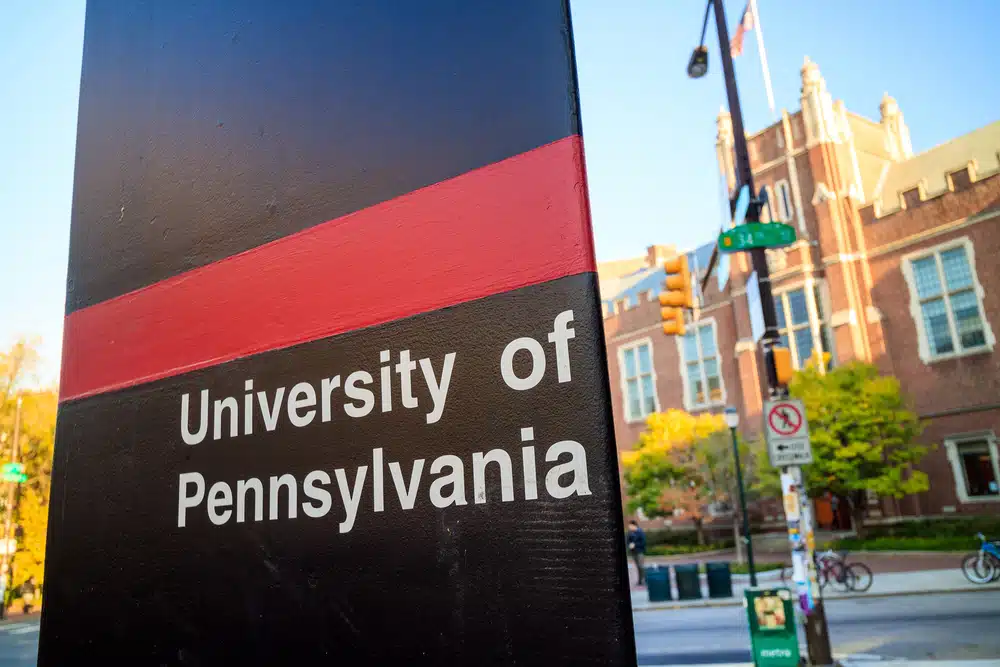UPenn vs Berkeley: Which University is Right for You?
Choosing the right university is a daunting task for high school students, and it is essential to make an informed decision that aligns with your academic and personal goals. Two prestigious universities often compared are UPenn vs Berkeley. In this article, we will compare and contrast the features of these universities to help you decide which one is the right choice for you.
Overview of UPenn and Berkeley
The University of Pennsylvania (UPenn), located in Philadelphia, is one of the eight Ivy League universities in the United States. It was founded in 1740 and has a long history of providing exceptional education to students. On the other hand, the University of California, Berkeley (Berkeley) is a public research university located in the San Francisco Bay Area and is renowned for its academic excellence and research contributions.
Both UPenn and Berkeley offer a wide range of undergraduate and graduate programs in various fields of study. UPenn has 12 schools, including the Wharton School of Business and the School of Engineering and Applied Science, while Berkeley has 14 colleges and schools, including the Haas School of Business and the College of Engineering. Additionally, both universities have a diverse student body and offer numerous opportunities for students to get involved in extracurricular activities, research, and community service.
UPenn vs Berkeley: Admission Requirements
Admission to both UPenn and Berkeley is highly competitive, and applicants need to meet specific criteria to be accepted. To apply to UPenn, students need to submit the Common Application or the Coalition Application, along with standardized test scores (SAT or ACT), two letters of recommendation, essays, and transcripts. Berkeley also requires the submission of standardized test scores (SAT or ACT), letters of recommendation, essays, and transcripts as part of the application process. The admission rate for UPenn is around 8% and for Berkeley, it is around 17%.
However, there are some differences in the admission requirements between the two universities. UPenn also requires applicants to submit a mid-year report and a school report, while Berkeley does not. On the other hand, Berkeley requires applicants to complete a minimum of 15 college-preparatory courses, including a year of visual and performing arts, while UPenn does not have a specific course requirement. It is important for applicants to carefully review the admission requirements for each university and ensure that they meet all the criteria before submitting their application.
Campus Life at UPenn and Berkeley
The campus life at UPenn and Berkeley is vibrant and diverse, with plenty of opportunities for students to explore their interests and passions. UPenn offers a range of extracurricular activities, including sports, clubs, and organizations. Similarly, Berkeley has over 1000 student organizations that cater to various interests such as arts, culture, academics, and sports.
Both universities also have a strong focus on community service and social justice. UPenn’s Netter Center for Community Partnerships offers students the chance to engage in service-learning projects in the local Philadelphia community. Berkeley’s Public Service Center provides opportunities for students to get involved in community service projects and social justice initiatives both locally and globally. These programs allow students to make a positive impact on the world while also gaining valuable skills and experiences.
Cost of Attendance: UPenn vs Berkeley
The cost of attending a university is an important factor for most students and their families. The cost of attendance at UPenn is around $76,000 per year, and at Berkeley, it is around $36,000 per year for in-state students and around $65,000 per year for out-of-state students. Financial aid and scholarships are available at both universities to reduce the cost of attendance.
However, it is important to note that the cost of attendance is not the only factor to consider when choosing a university. UPenn and Berkeley have different strengths and weaknesses in terms of academic programs, campus culture, and location. UPenn is located in Philadelphia, a vibrant city with a rich history and diverse population. Berkeley, on the other hand, is located in the San Francisco Bay Area, known for its innovation and entrepreneurial spirit.
Additionally, the cost of attendance may vary depending on the student’s individual circumstances. For example, students who live off-campus may have lower living expenses than those who live on-campus. Similarly, students who receive merit-based scholarships or need-based financial aid may have a lower cost of attendance than those who do not receive any financial assistance.
Academic Programs at UPenn and Berkeley
UPenn and Berkeley are both known for offering exceptional academic programs across a range of fields. UPenn offers undergraduate programs in areas such as engineering, business, nursing, arts and sciences, and others. Similarly, Berkeley offers programs in areas such as engineering, natural sciences, social sciences, humanities, and others.
Both universities also offer graduate programs in various fields. UPenn has graduate programs in areas such as law, medicine, education, social policy, and others. Berkeley offers graduate programs in areas such as business, public health, journalism, information studies, and others. Additionally, both universities have research opportunities for students and faculty, allowing them to contribute to their respective fields and make significant discoveries.
Faculty and Research Opportunities at UPenn vs Berkeley
The faculty and research opportunities available at UPenn and Berkeley are top-notch, and both universities have a strong reputation for research and innovation. UPenn has a faculty of around 4,000, and Berkeley has a faculty of around 2,300. Both universities have research centers and institutes that enable students to pursue their research interests.
However, there are some differences in the research focus of the two universities. UPenn has a strong emphasis on interdisciplinary research, with centers such as the Penn Integrates Knowledge program and the Penn Institute for Biomedical Informatics. Berkeley, on the other hand, has a strong focus on STEM fields, with research centers such as the Lawrence Berkeley National Laboratory and the Berkeley Institute for Data Science. Students interested in pursuing research in these areas may find one university more suitable than the other.
Student Diversity: A Comparison between UPenn and Berkeley
The student body at UPenn and Berkeley is diverse, with students from various backgrounds and cultures. UPenn has a diverse community, with students from all 50 states and over 100 countries. Similarly, Berkeley has a diverse student body, with students from over 100 countries.
However, there are some differences in the types of diversity present at each university. UPenn has a higher percentage of international students, making up 12% of the student body, compared to Berkeley’s 9%. On the other hand, Berkeley has a higher percentage of underrepresented minority students, with 30% of the student body identifying as Hispanic, Black, Native American, or Pacific Islander, compared to UPenn’s 25%.
Both universities have made efforts to promote diversity and inclusion on their campuses. UPenn has a variety of student organizations and programs dedicated to promoting diversity, such as the Penn Consortium for Undergraduate Women and the Penn First Plus program for first-generation and low-income students. Berkeley has a similar range of programs, including the Multicultural Community Center and the Undocumented Student Program.
UPenn vs Berkeley: Sports Programs
Both UPenn and Berkeley have excellent sports programs, with a range of options for students to participate in sports and athletics. UPenn has over 30 varsity sports teams, including basketball, football, and soccer. Similarly, Berkeley has over 30 varsity sports teams, including basketball, football, and soccer.
However, UPenn also offers a wide range of club sports, such as ultimate frisbee, fencing, and water polo. These clubs provide opportunities for students to participate in sports at a competitive level, without the commitment required for varsity sports. Additionally, UPenn has a state-of-the-art fitness center, equipped with the latest technology and equipment, which is available to all students.
On the other hand, Berkeley has a unique program called “Cal Adventures,” which offers outdoor recreational activities such as kayaking, rock climbing, and backpacking. This program is open to all students, regardless of their athletic ability, and provides a great opportunity for students to explore the outdoors and try new activities. Berkeley also has a strong intramural sports program, which allows students to form teams and compete against each other in a variety of sports.
Career Opportunities after Graduation from UPenn and Berkeley
Graduates from both UPenn and Berkeley are highly sought after by employers and have excellent career prospects. UPenn graduates have a median starting salary of around $75,000, and Berkeley graduates have a median starting salary of around $69,000.
Furthermore, both universities have strong alumni networks that provide graduates with valuable connections and opportunities. UPenn alumni include notable figures such as Elon Musk, Warren Buffett, and Donald Trump, while Berkeley alumni include Steve Wozniak, Eric Schmidt, and Gordon Moore.
Additionally, both universities offer extensive career services and resources to their graduates, including job fairs, networking events, and career counseling. UPenn’s Career Services office provides personalized career coaching and access to job and internship postings, while Berkeley’s Career Center offers workshops and seminars on topics such as resume writing and interview skills.
Housing Options: A Comparison between UPenn and Berkeley
Both UPenn and Berkeley offer a range of housing options to students, including dormitories, apartments, and off-campus housing. UPenn has around 12 residential colleges and offers on-campus housing to around 98% of its students. Berkeley has 30 residence halls and offers on-campus housing to around 27% of its students.
However, Berkeley has a larger selection of off-campus housing options compared to UPenn. This is due to the fact that Berkeley is located in a more urban area with a higher population density, allowing for more apartment complexes and rental properties to be available to students. UPenn, on the other hand, is located in a more residential area with fewer off-campus housing options. Students at UPenn often have to search further from campus to find suitable off-campus housing.
Student Organizations: What is Available at UPenn and Berkeley?
UPenn and Berkeley both offer a range of student organizations that cater to different interests and passions. UPenn has over 200 clubs and organizations, including cultural, social, academic, and service-oriented organizations. Similarly, Berkeley has over 1000 registered student organizations that cater to a diverse range of interests, including political, cultural, and religious organizations.
At UPenn, some of the most popular student organizations include the Penn Debate Society, the Penn International Business Volunteers, and the Penn Student Government. These organizations provide students with opportunities to develop leadership skills, engage in community service, and network with professionals in their fields of interest.
Meanwhile, at Berkeley, students can join organizations such as the Berkeley Student Food Collective, the Berkeley Political Review, and the Berkeley Women in Business. These organizations offer students the chance to explore their passions, connect with like-minded individuals, and gain valuable experience in their chosen fields.
UPenn vs Berkeley: Safety on Campus
The safety of students on campus is a crucial concern for universities, and both UPenn and Berkeley have measures in place to ensure the safety of their students. UPenn has a low crime rate and has campus security officers patrolling the campus 24/7. Similarly, Berkeley has a low crime rate and has campus police officers who patrol the campus.
However, there are some differences in the safety measures taken by the two universities. UPenn has a system called Penn Guardian, which is a mobile app that allows students to quickly and easily contact campus security in case of an emergency. The app also has a feature that allows students to share their location with campus security while they are walking alone at night. On the other hand, Berkeley has a program called BearWALK, which provides students with a walking escort service during the evening and early morning hours. This service is available to all students, faculty, and staff who feel unsafe walking alone on campus.
UPenn vs Berkeley: Social Scene
The social scene at UPenn and Berkeley is diverse, and both universities offer a range of activities for students to explore. UPenn has a vibrant nightlife scene, with several bars, clubs, and restaurants in the vicinity of the campus. Similarly, Berkeley has several student bars and clubs within walking distance of the campus.
However, when it comes to outdoor activities, Berkeley has a clear advantage. The university is located in the Bay Area, which offers a plethora of outdoor activities such as hiking, biking, and water sports. Students can easily access nearby parks and beaches for a day of outdoor fun. UPenn, on the other hand, is located in the heart of Philadelphia, which is a bustling city with limited outdoor recreational options.
Alumni Network: A Comparison between UPenn and Berkeley
Both UPenn and Berkeley have a robust alumni network that provides students with a range of career and networking opportunities after graduation. UPenn has a network of around 300,000 alumni, and Berkeley has a network of around 500,000 alumni.
In conclusion, both UPenn and Berkeley are excellent universities that offer exceptional educational opportunities to students. The choice of university ultimately depends on your personal preferences and goals. We hope that this article has provided you with the necessary information to make an informed decision about which university is right for you.
However, it is worth noting that the alumni networks of UPenn and Berkeley differ in terms of their geographical distribution. UPenn’s alumni network is more concentrated in the Northeast region of the United States, particularly in cities like New York and Philadelphia. On the other hand, Berkeley’s alumni network is more spread out across the country, with a significant presence on the West Coast. This may be a factor to consider if you are looking to build a career in a specific region of the United States.
How AdmissionSight Can Help You With College Admissions
AdmissionSight is a college consulting firm that provides personalized assistance to students throughout the college admissions process. Here are some ways that AdmissionSight can help you:
Admissions strategy: AdmissionSight can help you develop a strategic plan for your college application process. Our professional consultants can assist with identifying schools that are a good fit for your academic, extracurricular, and personal goals and help you plan and prioritize your application strategy.
Application review: AdmissionSight can review your application and provide feedback on how to improve it. We can offer suggestions on making your application stand out and highlighting your strengths and unique qualities.
Essay coaching: AdmissionSight can help you craft compelling essays that showcase your personality, goals, and achievements. We can guide you through the essay writing process and provide feedback on your drafts to help you refine your writing.
Interview preparation: AdmissionSight can provide interview coaching to help you feel confident and prepared for college interviews. Our experts can offer tips on how to present yourself professionally and how to answer common interview questions.
Extracurricular planning: AdmissionSight can help you plan and develop your extracurricular activities to make them more impactful and meaningful. We can suggest activities that align with your interests and goals and provide guidance on demonstrating your leadership and initiative.
Overall, AdmissionSight can provide valuable guidance and support throughout the college admissions process to help you maximize your chances of getting accepted into the college of your choice.
With a high success rate of over 75%, we have built a strong network in the past decade. Book an initial consultation today, free of charge!










































